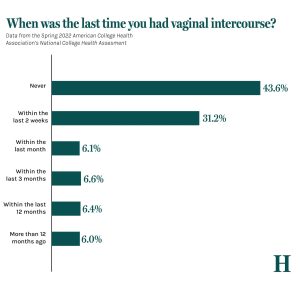Proposed staff benefits cuts to be assessed by President Fitts
November 12, 2014
The Senate Benefits Committee submitted a recommendation to reduce certain faculty and staff benefits to President Michael Fitts. The proposal would impose a maximum on sick days, reduce the maximum number of vacation days and reduce the tuition waiver program.
The three proposed benefit changes are still under consideration and Fitts has made no move to initiate the changes.
“He has been here since July, and I think he is just trying to understand everything he can about the institution and how we operate our budget,” Chief of Staff and Vice President Anne Baños said. “He has not yet made a decision.”
Currently, faculty members have a carryover maximum on vacation days. The Faculty Handbook states that faculty members normally perform their duties on a 12-month basis with vacation time accruing at the rate of two workdays per month, or roughly one month per year.
There would be a reduction to the carryover maximum on vacation days with the proposed changes, Baños said.
In terms of changes to sick days, faculty members currently have no maximum number of sick days. This could change under the new proposal.
The third proposed change would be to the tuition waiver program.
“Under the new proposal the percentage of the waiver correlates with the years of service and is different depending on who the waiver applies to, whether it is to the employee or to the dependents,” Baños said.
The current Faculty Handbook states that annual tuition waivers are “exemptions from the payment of tuition.” They are available to eligible employees and an employee’s spouse and dependent children. The total number of annual tuition waivers is equal to the number of years of full-time service.
Under the final proposal recommended to Fitts, however, any changes to the tuition waiver program would only apply to new employees, not current faculty and staff, Director of Budget and Financial Affairs Alysia Loshbaugh said.
The proposed changes to benefits stem from a long-term planning initiative that was put forth by former President Scott Cowen in the final year of his presidency. As part of this initiative, Cowen submitted a proposal about benefit changes to the Senate Benefits Committee.
“That proposal was not received favorably, so a subcommittee that was equally comprised of faculty and staff to further review and discuss those benefits was formed,” Baños said.
Senate meeting minutes from March 17 stated that Professor Gaurav Desai expressed concern and disappointment that the administration did not directly inform the faculty that cuts in benefits were being discussed. Professor Michelle White said that many faculty and staff members were feeling “voiceless.”
Between March and the end of May, the subcommittee of the Senate Benefits Committee reviewed the changes and brought discussion of the changes before the faculty and staff.
“We invited people if they had concerns to share suggestions of how they might be handled differently,” Baños said. “The subcommittee did a lot of due diligence to talk through alternatives to come up with what they eventually put in front of the Senate Benefits Committee.”
Cutting faculty and staff benefits would help reduce the costs of the university, and any final decisions by Fitts to implement the proposed changes would determine the savings.
“Our income is limited to about five sources, and all of those sources are sensitive,” Baños said. “All of our benefits costs are real costs, and those costs increase all the time.”
When Cowen discussed the potential changes with faculty present at the March 2014 University Senate Meeting, he expressed his concern over the challenges facing everyone in higher education.
“[Cowen’s] primary message about the looming crisis in higher education is not getting across, and he argued that senators and other faculty need to be aware of what is going on not just here but nationwide in the field of higher education,” senate meeting minutes stated.
The senate discussed how cuts on benefits, specifically delays on tuition waivers, might impact the university’s ability to recruit and hire new faculty members at its March meeting.
Banõs said the university faces difficulty providing benefits to employees while remaining cost efficient.
“What we are looking at as we go through these things is how to provide the best benefits we can for our employees, but also how to keep it affordable for both the employee and the university,” Banõs said.























Leave a Comment